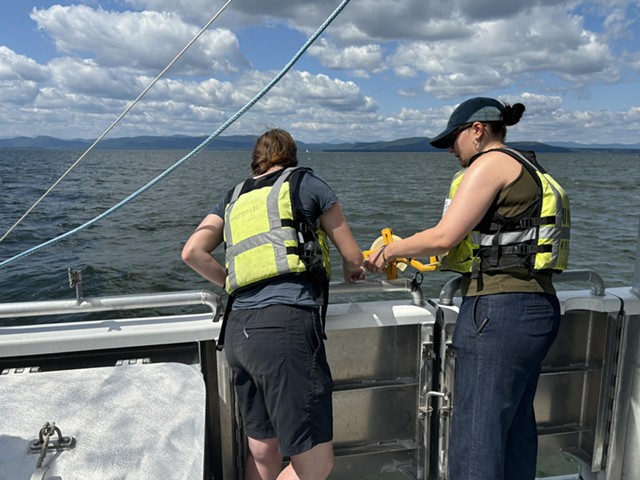
- Jack McGuire ©️ Seven Days
- Researchers testing water clarity
Billions of gallons of rainwater, runoff and debris spilled into Lake Champlain after the heavy rain and flooding earlier this month, turning the water into brown muck.
The storm on July 10 and 11 also added large amounts of the nutrient phosphorus to the lake, which can drive cyanobacteria blooms later in the summer, according to Matthew Vaughan, chief scientist for the Lake Champlain Basin Program. But, he added, this month’s storm does not appear to have been as impactful to the lake’s water quality as last summer’s flooding, which deposited about one-half of Lake Champlain’s annual phosphorus target in one week.
Vaughan said this year’s storm was more intense and in a more concentrated area. Much of the heavy rain fell over a shorter period of time and further up in the watershed, which devastated some communities along tributaries but led to lower flows into Lake Champlain. Even still, brown muck rushed out of tributaries, from Otter Creek near Vergennes up to the Lamoille River at Milton.
Last Thursday, Vaughan and other experts took a crew of journalists aboard the University of Vermont’s electric hybrid research vessel, Marcelle Melosira, to explain the flooding’s impact on the lake. As the boat approached the mouth of the Winooski River, the largest tributary into Lake Champlain, the water became murkier from the sediment picked up by the rushing waters.
Researchers on the boat conducted a Secchi water clarity test in the middle of the lake. Scientists use the test to measure water clarity and turbidity by dropping a black and white disk into water and seeing how deep it goes before the disk is no longer visible.
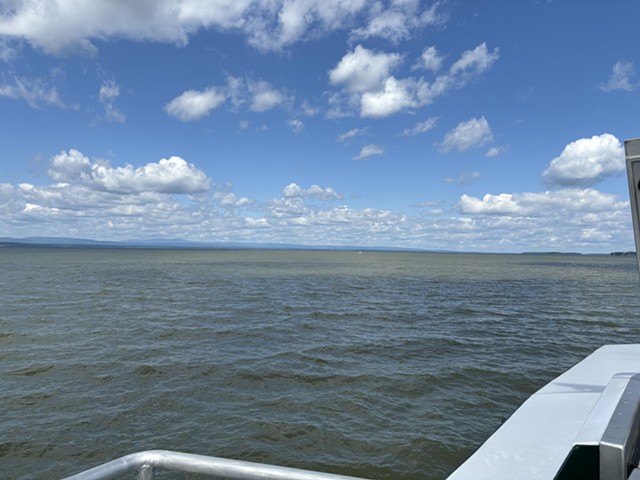 In Lake Champlain, the water was 1.7 meters deep before the UVM researchers could no longer see the disk. A typical Secchi depth in this part of the lake should be four or five meters, Vaughan said. Last year, it took about two weeks for the water to clear up after the flooding, Vaughan said: “We're still kind of in the middle of that for this year.”
In Lake Champlain, the water was 1.7 meters deep before the UVM researchers could no longer see the disk. A typical Secchi depth in this part of the lake should be four or five meters, Vaughan said. Last year, it took about two weeks for the water to clear up after the flooding, Vaughan said: “We're still kind of in the middle of that for this year.”
High E. coli counts after the storm led to some beach closures in Burlington, but they’ve since reopened. Alburgh Dunes State Park, too, was temporarily closed, but it and other state parks on Lake Champlain are now open.
With climate change creating more severe storms, researchers say upstream solutions can help slow down the flow of sediments into Lake Champlain. On the research vessel, they discussed how green stormwater infrastructure such as wetlands, rain gardens and better infiltration practices can help address the threat.
“When [floodplains are] properly functioning, when they receive floodwaters regularly, when they have vegetation communities out there, they can do a lot to slow floodwaters and capture those nutrients and sediments,” said Rebecca Diehl, a research assistant professor in the Department of Geography and Geosciences at UVM. “If we can take advantage and harness that natural function, we potentially can put a dent in [the] massive amounts of sediments that are moving through our landscape.”
Corrections, July 23, 2024: A previous version of this story misattributed certain information about how the storm impacted the water quality to Vaughan, and included the incorrect depth at which a Secchi disk should be visible.
The storm on July 10 and 11 also added large amounts of the nutrient phosphorus to the lake, which can drive cyanobacteria blooms later in the summer, according to Matthew Vaughan, chief scientist for the Lake Champlain Basin Program. But, he added, this month’s storm does not appear to have been as impactful to the lake’s water quality as last summer’s flooding, which deposited about one-half of Lake Champlain’s annual phosphorus target in one week.
Vaughan said this year’s storm was more intense and in a more concentrated area. Much of the heavy rain fell over a shorter period of time and further up in the watershed, which devastated some communities along tributaries but led to lower flows into Lake Champlain. Even still, brown muck rushed out of tributaries, from Otter Creek near Vergennes up to the Lamoille River at Milton.
Last Thursday, Vaughan and other experts took a crew of journalists aboard the University of Vermont’s electric hybrid research vessel, Marcelle Melosira, to explain the flooding’s impact on the lake. As the boat approached the mouth of the Winooski River, the largest tributary into Lake Champlain, the water became murkier from the sediment picked up by the rushing waters.
Researchers on the boat conducted a Secchi water clarity test in the middle of the lake. Scientists use the test to measure water clarity and turbidity by dropping a black and white disk into water and seeing how deep it goes before the disk is no longer visible.

- Jack McGuire
- Some of the lake was still murky a week after the flooding.
High E. coli counts after the storm led to some beach closures in Burlington, but they’ve since reopened. Alburgh Dunes State Park, too, was temporarily closed, but it and other state parks on Lake Champlain are now open.
With climate change creating more severe storms, researchers say upstream solutions can help slow down the flow of sediments into Lake Champlain. On the research vessel, they discussed how green stormwater infrastructure such as wetlands, rain gardens and better infiltration practices can help address the threat.
“When [floodplains are] properly functioning, when they receive floodwaters regularly, when they have vegetation communities out there, they can do a lot to slow floodwaters and capture those nutrients and sediments,” said Rebecca Diehl, a research assistant professor in the Department of Geography and Geosciences at UVM. “If we can take advantage and harness that natural function, we potentially can put a dent in [the] massive amounts of sediments that are moving through our landscape.”
Corrections, July 23, 2024: A previous version of this story misattributed certain information about how the storm impacted the water quality to Vaughan, and included the incorrect depth at which a Secchi disk should be visible.
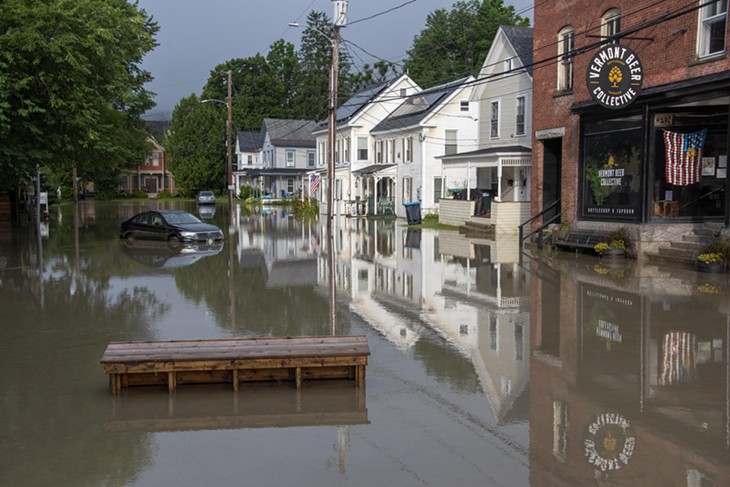
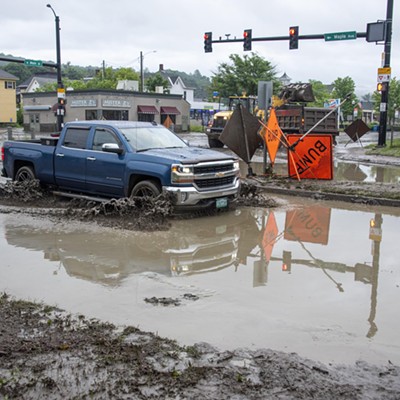
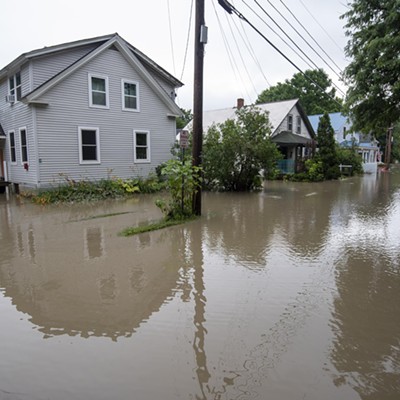
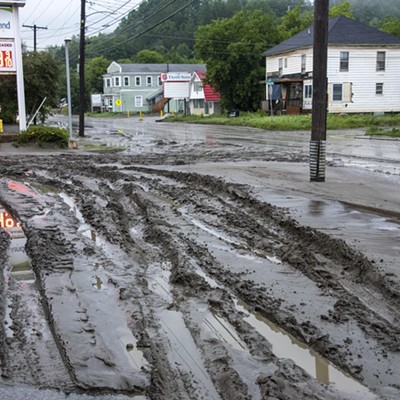
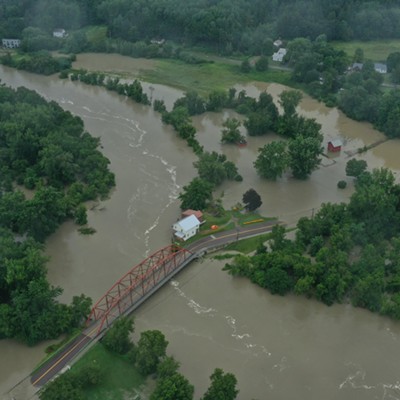
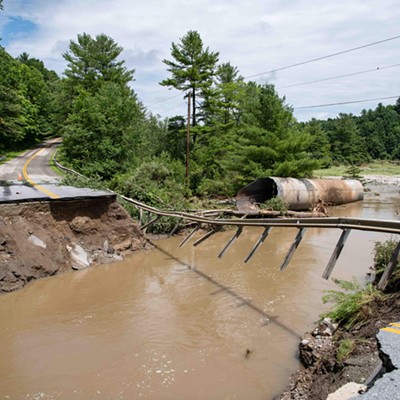
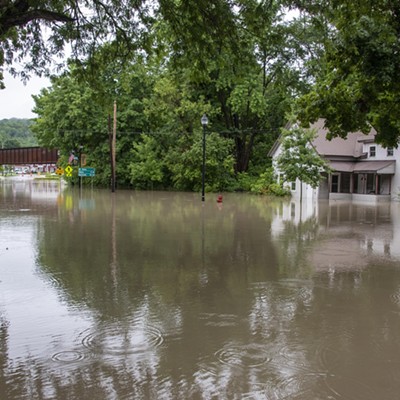
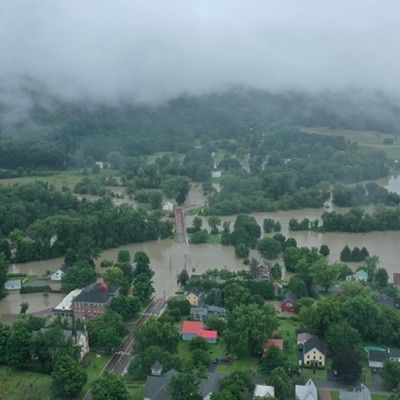
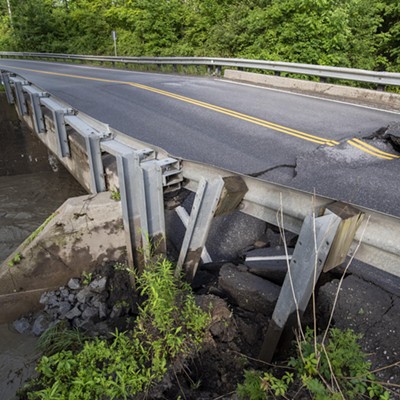
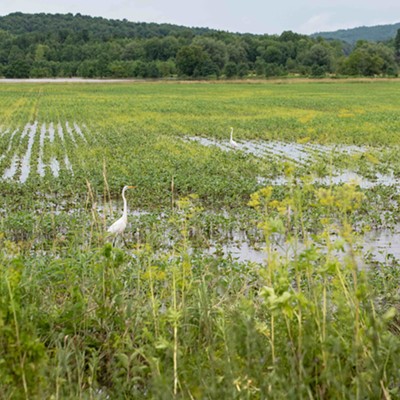

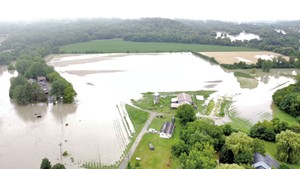

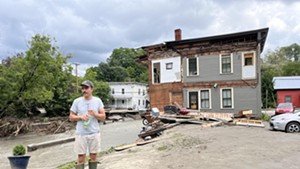











Comments
Comments are closed.
From 2014-2020, Seven Days allowed readers to comment on all stories posted on our website. While we've appreciated the suggestions and insights, right now Seven Days is prioritizing our core mission — producing high-quality, responsible local journalism — over moderating online debates between readers.
To criticize, correct or praise our reporting, please send us a letter to the editor or send us a tip. We’ll check it out and report the results.
Online comments may return when we have better tech tools for managing them. Thanks for reading.